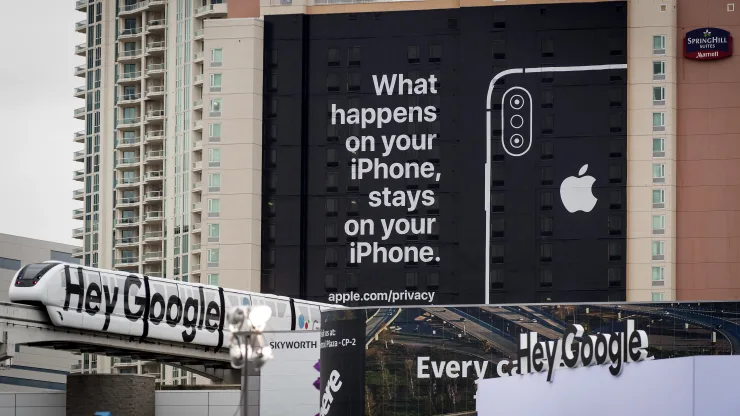The proposed change to Apple's end-to-end data encryption services would close a privacy loophole that previously allowed law enforcement agencies, such as the FBI, to access a wide range of data stored in iCloud accounts. This data could include photos and messages.
Proponents of the change argue that it is a victory for user privacy, while detractors, including the FBI, are likely to oppose the move. It is unclear at this time whether Apple's plans will be implemented. It is unclear when Apple made the announcement, as per The Washington Post, to offer fully encrypted backups of user data in its cloud storage system.
This change would put the data out of the reach of most hackers, spies, and law enforcement agencies. Apple has a reputation for prioritizing user privacy, including its use of end-to-end encryption for iMessages between Apple devices. This means that the messages can only be read on the devices and not by Apple, phone service providers, or law enforcement with a warrant. It is unclear if Apple has implemented this change or if it has faced any opposition.
Data Breach
The FBI has expressed its concern about the perceived threat that end-to-end and user-only-access encryption poses to their ability to protect the American people from various criminal activities. In a statement, the FBI said that encryption hinders their ability to investigate crimes such as cyber-attacks, violence against children, drug trafficking, organized crime, and terrorism.
They also argued that in today's age of cybersecurity, the FBI and other law enforcement agencies need "lawful access by design" to effectively carry out their duties. Since Apple has announced plans to expand its end-to-end encryption system to keep most iCloud data indecipherable, even when it's stored in data centers. This means that, even if law enforcement has a warrant for someone's iCloud account, Apple will not be able to provide a file of unencrypted messages, photos, and notes.
The increased protections, which are optional, aim to make sensitive data inaccessible to hackers and governments. Formerly, encryption only protected select data such as passwords, payment, as well as health data. The changes are part of a wider effort by tech companies to improve customer security. Google recently introduced end-to-end encryption for group chats in its Messages app, and Facebook's WhatsApp offered encrypted backups a year ago.

Accessing User's Privacy
Following the CNBC report, the move may come into conflict with US law enforcement and other governments which have demanded access to criminals' iPhones in the past. Apple has not assisted authorities with unlocking iPhones but has provided access to iCloud backups of unencrypted messages and photographs to fulfill thousands of requests each year. The new security upgrades will prevent such access.
The FBI's argument for accessing digital data is similar to their justification for searching physical possessions. While their concerns are understandable, end-to-end encryption is not meant to create obstacles for law enforcement or make committing crimes easier. User privacy is important, and many people have given away significant amounts of data without realizing it.
Additionally, data breaches and hacking incidents are prevalent. The new end-to-end encryption, which will not include Apple's email, calendar, and contacts features, would improve user security.
In short, tech companies, law enforcement agencies, and users have not yet found a way to balance data encryption that satisfies everyone. It's great to see companies prioritizing security, as mentioned by Sasha O'Connell, executive in residence at American University and former FBI section chief. But everyone has to keep in mind that there are trade-offs, O'Connell added in a statement from The NYT.
Check out more news and information on Security Breach in Science Times.










